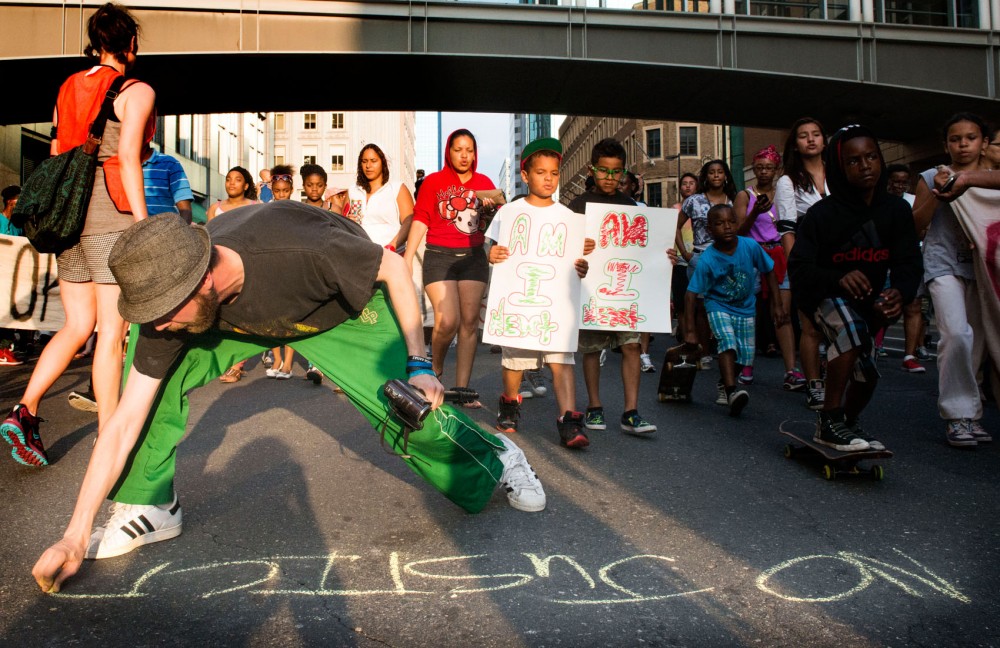Thousands of people carrying handmade signs and chanting “No justice, no peace,” packed the Government Plaza in downtown Minneapolis Monday evening to protest the acquittal of George Zimmerman in the fatal shooting of 17-year-old Trayvon Martin last year.
Zimmerman, a Sanford, Fla. neighborhood watch volunteer, was cleared of all charges Saturday in the shooting. Martin’s death sparked national debate over Florida’s Stand Your Ground law and racial profiling.
The Minneapolis rally was organized by the non-profit MN Neighborhoods Organizing for Change. Monday night’s speakers demanded justice for both Martin and 22-year-old Terrance Franklin, who was shot and killed by Minneapolis police this spring.
Many at the rally held signs drawing parallels between Martin and Franklin, localizing the national dialogue on race relations.
Amber Jones, president of the University of Minnesota’s Black Student Union, said the rally made it possible for people to “share their burdens, grieve and support one another.”
“It might have been a case involving just one young black man,” she said, “but it hurts for a lot of people who went through very similar situations.”
Rally attendees flooded the Government Plaza early in the evening and later marched to Hennepin Avenue and back, with Minneapolis police and rally volunteers redirecting traffic.
Community activists and leaders, including local musician Brother Ali, spoke at the rally, calling for “justice for Trayvon” and an “end to racial injustice in the court systems.”
The protest was widely attended by members of the University community, including BSU, Voices Merging, Black Motivated Women and several fraternities and sororities.
Rally attendees were diverse in age, race and religious affiliation, which Alpha Kappa Alpha President Mercedes McKay said she was glad to see.
Lori Kellers, who was at the rally with members of her church, said she thinks it’s important for people of all “walks of life” to participate in the “public rhetoric” surrounding Martin’s death.
For social change to occur, she said, people need to “step outside their world for awhile and take a hard look at the term ‘post-racial society.’”
Taking action
Rally participants agreed the event, and the case itself, need to spark a push for widespread change.
Jones stressed the importance of the rally not being a “one-time thing” and said the Martin case highlights a larger issue of “criminalization of black youth in America” and race relations nationwide.
“We don’t want to just be reactionary,” she said. “We want to be proactive.”
Part of that proactive attitude was demonstrated at the rally by volunteers who helped attendees register to vote and volunteer for future demonstrations.
The rally, which was driven strongly by the use of social media, including the Twitter hashtag #hoodiesupmn, needs to be action-driven, McKay said.
“With our generation, we’re very technologically savvy,” she said. “We’ll say what we want to say on social media, and then we’ll leave it at that and think that we’ve done our part.”
Instead of waiting for change to happen, McKay said, people need to take direct action.
“We have to organize and make sure our voices are heard,” she said. “As long as we’re just talking and we’re not taking action, nothing will get done.”
-The Associated Press
contributed to this report.








